Member update: September 2019
O’Handley honored as faculty mentor
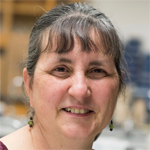 Suzanne O’Handley
Suzanne O’Handley
has received the .
This award is presented to distinguished faculty members who conduct their research in science, technology, engineering and mathematics fields.
An associate professor in the school of chemistry and materials science at Rochester Institute of Technology, O’Handley was recognized for her distinguished achievements as a scholar, teacher and mentor.
In her 15 years serving as RIT’s Goldwater campus representative, O’Handley has mentored six students who were named Goldwater scholars and has involved 65 undergraduates in her laboratory research. Under her leadership, RIT has had 28 Goldwater scholars and seven honorable mentions.
O’Handley received the award in April at the National Conference on Undergraduate Research at Kennesaw State University. The award includes $5,000 to support the awardee’s research program and/or undergraduate researchers.
Bissell receives two awards
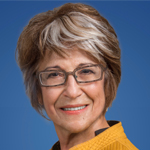 Mina Bissell
Mina Bissell
, a distinguished scientist with the Lawrence Berkeley National Laboratory, has for her contributions to breast cancer biology and medicine.
The American Philosophical Society selected Bissell as the recipient of the Jonathan E. Rhoads Gold Medal for Distinguished Service to Medicine in recognition of her lifetime achievements. She will receive this award at the 2019 APS fall meeting in November.
The Weizmann Institute of Science has named Bissell as one of two recipients of the 2019 Weizmann Women and Science Award. Established in 1994, this award honors female scientists who have made significant contributions in their fields of research. It carries a $25,000 research grant, and winners are invited to deliver lectures at the institute.
Among her accomplishments, Bissell illuminated the pivotal role of the extracellular matrix and the nucleus environment to gene expression in normal and malignant cells.
Taylor, Drain among new ACE fellows
 Ann T.S. Taylor
Ann T.S. Taylor 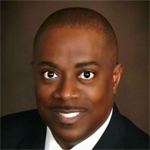 Jerome Drain
Jerome Drain
and Jerome Drain are among the 39 fellows newly elected to the .
Taylor chairs the division of natural sciences and mathematics and is the Haines associate professor of biochemistry at Wabash College in Indiana.
The first biochemist in the Wabash chemistry department, Taylor developed the courses and curriculum for the institution’s biochemistry major program. She serves on numerous committees focusing on topics including policy, faculty development and philanthropy.
Jerome Drain is the dean of earth, life and natural sciences at Houston Community College. He began serving as HCC’s interim associate vice chancellor of instruction earlier this year.
Prior to joining HCC in 2014, Drain held positions at Atlanta Metropolitan State College and Davenport University.
Established in 1965, the ACE Fellows Program promotes and strengthens higher education by identifying and preparing faculty members for senior positions.
Langer wins Dreyfus prize
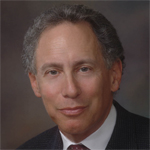 Robert Langer
Robert Langer
, an institute professor at the Massachusetts Institute of Technology, has won the 2019 in the Chemical Sciences.
The highest honor awarded by the Camille and Henry Dreyfus Foundation, this biennial prize, initiated in 2009, is conferred in a specific area of chemistry each cycle. Langer is being honored for chemistry in support of public health for discoveries and inventions of materials for drug-delivery systems and tissue engineering that have had a transformative impact.
Using biotechnology and materials chemistry, Langer’s lab has developed polymers to deliver drugs continuously and at controlled rates for prolonged periods. These have been translated into commercial products to treat brain and prostate cancer, macular degeneration and mental health disorders such as schizophrenia and opioid addition. His work with Joseph Vacanti in tissue engineering led to the creation of new skin, cartilage, bone, corneas and blood vessels in humans.
Langer has written more than 1,400 articles. His many honors include both the National Medal of Science and the National Medal of Technology and Innovation. About 40 companies have been spun out of the Langer lab.
Langer will deliver a lecture at an awards ceremony at MIT in September. The Dreyfus prize includes a $250,000 award.
Gairdner awardees include Springer, Stillman
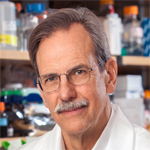 Timothy A. Springer
Timothy A. Springer 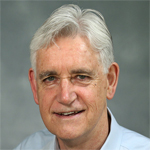 Bruce Stillman
Bruce Stillman
and are among the recipients of the .
Since 1959, the Gairdner Foundation has given the Canada Gairdner International Awards to scientists who have made significant achievements in biomedical research. Laureates each receive a $100,000 prize.
Springer, a professor at Harvard Medical School, is internationally renowned for his work in the fields of cell biology and immunology. The foundation is recognizing him “for discovery of the first immune system adhesion molecules, elucidation of their roles in antigen recognition and leukocyte homing, and translation of these discoveries into therapeutics for autoimmune diseases,” according to a release from the foundation.
As president and CEO of Cold Spring Harbor Laboratory, Stillman is widely known for his discovery of the origin recognition complex and his research on the process and regulation of chromosome replication. The foundation is recognizing him for his “pioneering research on the eukaryotic DNA replication cycles including initiation, regulation and responses to DNA damage.”
Springer and Stillman will be honored at the Canada Gairdner Awards Gala in October.
Chemistry society honors Kiessling, Butler
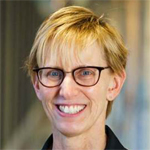 Laura Kiessling
Laura Kiessling 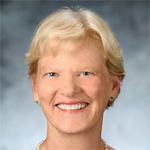 Alison Butler
Alison Butler
and have been recognized for their research by the .
Kiessling, a professor of chemistry at the Massachusetts Institute of Technology and a member of the Broad Institute, won one of the society’s three 2019 Centenary Prizes recognizing “outstanding contributions to our understanding of the assembly, recognition and functions of carbohydrates.” Kiessling is noted for her work on lectin-glycan interactions in cell-surface recognition, which can inform pathogen recognition and stem cell fate.
Butler, a member of the chemistry faculty at the University of California, Santa Barbara, received the biennial Inorganic Mechanisms Award for studies leading to understanding of reaction mechanisms. Butler studies metallobiochemistry in marine microbes and algae, focusing currently on microbial iron acquisition through secreted chelators called siderophores. She also is known for earlier work on the mechanisms of haloperoxidase enzymes, which carry out halogenation of organic molecules.
Both Kiessling and Butler will receive medals and monetary awards, and each will complete a U.K. lecture tour.
Two named Dreyfus teacher–scholars
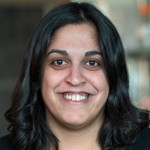 Dipali Sashital
Dipali Sashital 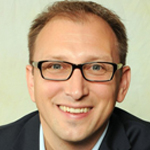 Timothy Wencewicz
Timothy Wencewicz
and are among the 13 recipients of the .
The awards, presented by the Camille and Henry Dreyfus Foundation, support the research and teaching careers of talented young faculty in the chemical sciences. Each award includes an unrestricted research grant of $100,000.
Sashital is an associate professor of biochemistry at Iowa State University. Her lab combines biochemical, structural and cellular tools to study the molecular mechanisms of nucleic acid–protein complexes involved in CRISPR–Cas systems.
Wencewicz is an associate professor of chemistry at Washington University in St. Louis. His lab uses organic chemistry and enzymology to study the molecular mechanisms of antibiotic action, biosynthesis, resistance and delivery.
14 student members named Goldwater scholars
Fourteen undergraduate members of the ═╡┼─═╡┐· and ═╡┼─═╡┐· Biology won awards from the this spring. Trustees for the fund, which was established by Congress and named after the senator in 1986, selected 496 winners this year in partnership with the Department of Defense .
The ASBMB members who won scholarships are listed below along with their career goals:
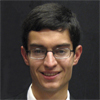 Steven Fried, University of Arizona: “I will pursue a Ph.D. in chemistry with an emphasis in biophysics. I aspire to conduct biophysical research on protein dynamics as a university professor, and in so doing advance human health.”
Steven Fried, University of Arizona: “I will pursue a Ph.D. in chemistry with an emphasis in biophysics. I aspire to conduct biophysical research on protein dynamics as a university professor, and in so doing advance human health.”
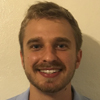 Zachary Fralish, Florida Southern College: “I plan to pursue a Ph.D. in biomedical engineering with a specialization in drug-delivery mechanisms.”
Zachary Fralish, Florida Southern College: “I plan to pursue a Ph.D. in biomedical engineering with a specialization in drug-delivery mechanisms.”
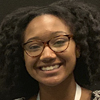 Liz Enyenihi, Emory University: “Ph.D. in biochemistry. I plan to conduct research in biomedical science and teach at the university level.”
Liz Enyenihi, Emory University: “Ph.D. in biochemistry. I plan to conduct research in biomedical science and teach at the university level.”
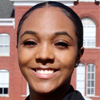 Dominique Mosley, Spelman College: “M.D.–Ph.D. in genetics. Conduct research on the development and application of cutting-edge genomic methods to precision medicine, teach, and advocate on behalf of vulnerable patient populations.
Dominique Mosley, Spelman College: “M.D.–Ph.D. in genetics. Conduct research on the development and application of cutting-edge genomic methods to precision medicine, teach, and advocate on behalf of vulnerable patient populations.
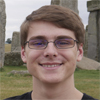 Alexander Stewart, Western Kentucky University: “Ph.D. in virology. Research virus structure at a government research laboratory such as the (Centers for Disease Control and Prevention).”
Alexander Stewart, Western Kentucky University: “Ph.D. in virology. Research virus structure at a government research laboratory such as the (Centers for Disease Control and Prevention).”
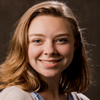 Megan Dillingham, Western Kentucky University: “Ph.D. in systems biology. Conduct research in a government lab on mechanisms of cancer evolution and model the development of heterogeneity, metastasis and resistance to improve treatment and outcome.”
Megan Dillingham, Western Kentucky University: “Ph.D. in systems biology. Conduct research in a government lab on mechanisms of cancer evolution and model the development of heterogeneity, metastasis and resistance to improve treatment and outcome.”
 Claire Williams, Northeastern University: “Ph.D. in microbiology/conservation biology. My goal is to lead a team of scientists to investigate the intersection of endangered species conservation and microbiome research.”
Claire Williams, Northeastern University: “Ph.D. in microbiology/conservation biology. My goal is to lead a team of scientists to investigate the intersection of endangered species conservation and microbiome research.”
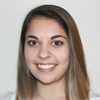 Gina Duronio, Northeastern University: “My professional aspirations are to obtain an M.D.–Ph.D. in molecular biology and conduct basic and translational oncology research as a university professor or a faculty member at a research hospital.”
Gina Duronio, Northeastern University: “My professional aspirations are to obtain an M.D.–Ph.D. in molecular biology and conduct basic and translational oncology research as a university professor or a faculty member at a research hospital.”
 Caleb Carr, University of Massachusetts, Amherst: “I plan to earn a Ph.D. in computational biology and become a professor at a research university. I would head my own research lab and teach concepts integrating computer science and the life sciences.”
Caleb Carr, University of Massachusetts, Amherst: “I plan to earn a Ph.D. in computational biology and become a professor at a research university. I would head my own research lab and teach concepts integrating computer science and the life sciences.”
 Kwan Yoon, University of Massachusetts, Amherst: “Ph.D. in biomolecular engineering. Conduct research in biochemistry and eventually become a principal investigator.”
Kwan Yoon, University of Massachusetts, Amherst: “Ph.D. in biomolecular engineering. Conduct research in biochemistry and eventually become a principal investigator.”
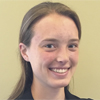 Alicia Bostwick, Hope College: “Ph.D. in biochemistry. Conduct biomedical research focusing on causes of and treatments for human diseases such as asthma, allergies, or cancer.”
Alicia Bostwick, Hope College: “Ph.D. in biochemistry. Conduct biomedical research focusing on causes of and treatments for human diseases such as asthma, allergies, or cancer.”
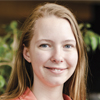 Tessa Steenwinkel, Michigan Technological University: “I would like to obtain a Ph.D. in biochemistry and molecular biology with the goal to become a professor in the field of human health, with a focus on fertility and early human development.”
Tessa Steenwinkel, Michigan Technological University: “I would like to obtain a Ph.D. in biochemistry and molecular biology with the goal to become a professor in the field of human health, with a focus on fertility and early human development.”
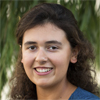 Charlotte Mineo, Union College: “I will pursue a Ph.D. in biochemistry. I plan to teach as a college professor and research plant biochemistry to better understand host–pathogen interactions at the molecular level.”
Charlotte Mineo, Union College: “I will pursue a Ph.D. in biochemistry. I plan to teach as a college professor and research plant biochemistry to better understand host–pathogen interactions at the molecular level.”
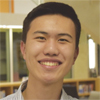 Austin Lai, Emory University: “M.D.–Ph.D. in neurobiology. Teaching and researching neurobiology at the university level and clinically apply my research to treat patients.”
Austin Lai, Emory University: “M.D.–Ph.D. in neurobiology. Teaching and researching neurobiology at the university level and clinically apply my research to treat patients.”
In memoriam: Barbara Low
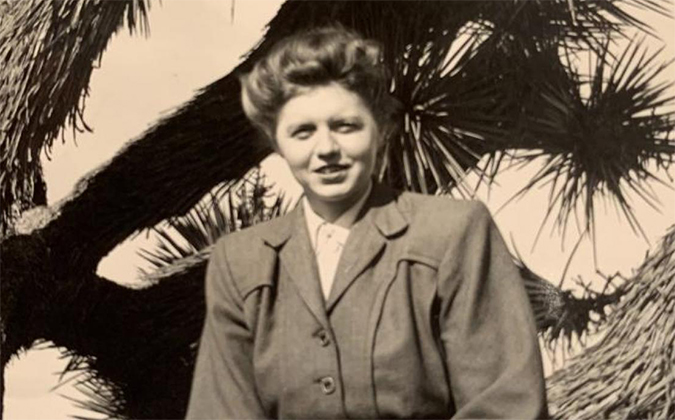 Columbia University emeritus professor of biochemistry and molecular biophysics died Jan. 10. She was 98.
Columbia University emeritus professor of biochemistry and molecular biophysics died Jan. 10. She was 98.
Low was born March 23, 1920, in Lancaster, England. She received her undergraduate degree in chemistry in 1943 from Somerville College of Oxford University before obtaining master’s and doctoral degrees in chemistry at Oxford in 1946 and 1948. She was as a doctoral student with Nobel laureate Dorothy Crowfoot Hodgkin.
After immigrating to the United States, Low worked as a research assistant to Nobel laureate Linus Pauling at the California Institute of Technology and Edwin Cohn at Harvard University.
Low joined the faculty at Columbia as an associate professor in 1956 and was named professor in 1966. She was in the early 1940s, and her research on snake venom neurotoxins led to a greater understanding of the acetylcholine receptor, a protein receptor that responds to the neurotransmitter targeted by snake venom.
She retired as a professor in 1990 but continued to lecture at the university until 2013.
Send us your news
Have you recently been promoted or honored? Do you have good news to share with your fellow ASBMB members? Email it to us and don’t forget to include a photo!
Enjoy reading ASBMB Today?
Become a member to receive the print edition four times a year and the digital edition monthly.
Learn moreGet the latest from ASBMB Today
Enter your email address, and weтАЩll send you a weekly email with recent articles, interviews and more.
Latest in People
People highlights or most popular articles

Meet Robert Helsley
The Journal of Lipid Research junior associate editor studies chronic liver disease and was the first in his family to attend college.

Exploring lifeтАЩs blueprint: Gene expression in development and evolution
Meet Julia Zeitlinger and David Arnosti тАФ two co-chairs of the ASBMBтАЩs 2025 meeting on gene expression, to be held June 26-29, in Kansas City, Missouri.

ASBMB names 2025 fellows
═╡┼─═╡┐· and ═╡┼─═╡┐· Biology honors 24 members for their service to the society and accomplishments in research, education, mentorship, diversity and inclusion and advocacy.

When Batman meets Poison Ivy
Jessica Desamero had learned to love science communication by the time she was challenged to explain the role of DNA secondary structure in halting cancer cell growth to an 8th-grade level audience.

The monopoly defined: Who holds the power of science communication?
тАЬAt the official competition, out of 12 presenters, only two were from R2 institutions, and the other 10 were from R1 institutions. And just two had distinguishable non-American accents.тАЭ

In memoriam: Donald A. Bryant
He was a professor emeritus at Penn State University who discovered how cyanobacteria adapt to far-red light and was a member of the ═╡┼─═╡┐· and ═╡┼─═╡┐· Biology for over 35 years.

